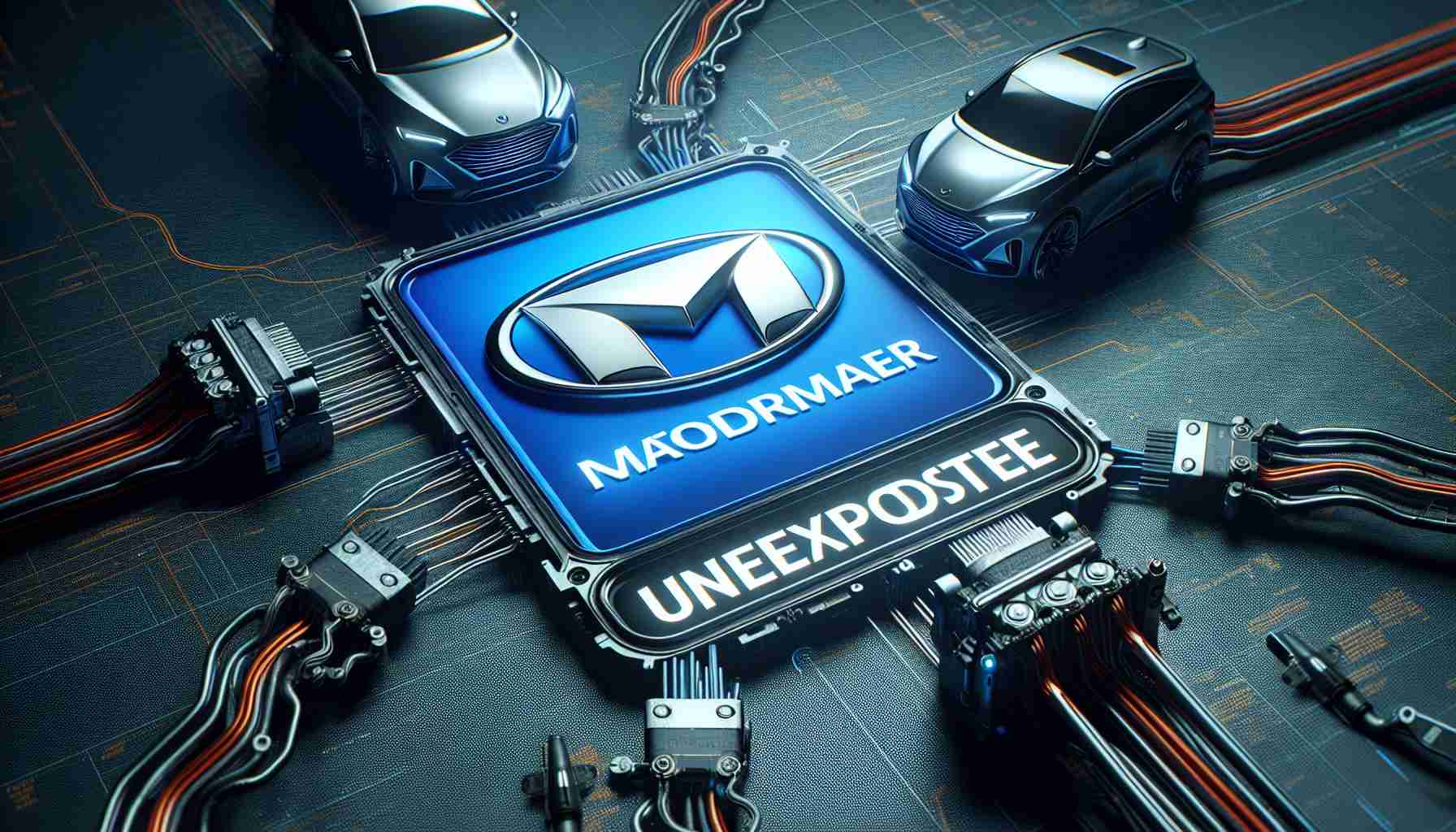Morgan Stanley analysts suggest Tesla could jump into the smartphone arena. They observe that the lines between automotive technology and mobile devices are increasingly blurring, as seen in the interactions between executives in the automotive industry and tech sector experts.
The possibility of Tesla, renowned for its advanced electric vehicles, expanding into the realm of advanced computing, such as creating a mobile artificial intelligence (AI) assistant, has long been speculated by Morgan Stanley’s experts. CEO Elon Musk spurred this conversation by acknowledging that such a development would align with Tesla’s AI projects, such as ‘Grok’.
From an industry standpoint, the importance of supercomputing capabilities, both within data centers and on the edge, is paramount. Tesla’s edge lies in the latest models that boast the energy capacity equivalent to 2,000 iPhones, equipped with liquid-cooled supercomputers, and can receive software updates remotely.
Morgan Stanley’s team ponders the potential for a smartphone to leverage the computational power and battery energy of Tesla vehicles for AI applications. The intersection of smartphones and edge computing presents challenges such as battery life management, thermal control, and minimizing latency for advanced AI applications.
Tesla vehicle owners already experience the integration of smartphones as principal keys for accessing and interacting with their cars from a distance. With technological advances like the ‘action button’ on iPhone 15, convenience and functionality are set to increase further.
ARK Investment Management’s bold Tesla stock prediction. Led by famed investor Cathie Wood, ARK posits that Tesla shares could climb to $2,600 by 2029. In a bullish scenario, shares could soar to $3,100, while a bearish outlook projects at $2,000 per share. Much of this hinges on the anticipated robotaxi service from Tesla, which could comprise up to 90% of the company’s market value and profits by 2029.
ARK estimates that while Tesla’s electric vehicles will account for about a quarter of total sales, it is the high-margin robotaxi service that promises greater profitability. Excluding the robotaxi potential, Tesla’s stock value could significantly drop. ARK’s models also consider updated assumptions on Tesla’s self-driving technology and production growth, forecasting a 45% annual increase in vehicle production.
ARK also identifies stationary energy storage and the humanoid robot Optimus project as growing ventures for Tesla that play a role in these valuations but are not considered primary factors in the stock price projections.
The analysis by Morgan Stanley about Tesla potentially entering the smartphone market raises several questions and touches on a number of key discussions:
Important Questions:
1. How would Tesla differentiate its smartphone from established competitors like Apple and Samsung?
Tesla would need to find a way to distinguish its smartphone in a market saturated with advanced features and brand loyalty. They might leverage their brand’s reputation for innovation and high-tech integration to attract customers.
2. What are the potential synergies between Tesla’s automotive technology and a new smartphone line?
Tesla could theoretically create a smartphone that tightly integrates with their vehicles, possibly providing unique functionalities such as advanced car controls, better energy management, or even specialized apps meant for Tesla car owners.
3. What challenges would Tesla face in entering the smartphone market?
The smartphone market is highly competitive with well-established players. Additionally, there’s the complexity of manufacturing, distribution, carrier partnerships, and customer service that Tesla would need to navigate.
Key Challenges:
– Market Penetration: Gaining share in the already saturated smartphone market is a significant hurdle.
– Technology Integration: Merging the automotive technology with mobile devices offers logistical and technical challenges.
– Consumer Expectations: Meeting the high expectations for performance, camera quality, software ecosystem, and battery life that consumers have for today’s smartphones.
Controversies:
– Brand Overextension: There could be concerns that Tesla may be spreading itself too thin by venturing outside its core competency of electric vehicles.
– Regulatory Hurdles: Tesla would face an entirely new set of regulatory challenges specific to mobile telecommunications.
Advantages:
– Synergy with Cars: Tesla smartphones could offer unmatched integration with Tesla vehicles, perhaps enabling unique features.
– Innovation: Tesla’s reputation for innovation could lead to the introduction of new technologies in the smartphone domain.
– Brand Loyalty: Tesla’s strong brand loyalty could encourage existing Tesla vehicle owners to become smartphone customers.
Disadvantages:
– High Competition: The smartphone market is dominated by companies that have been refining their products for over a decade.
– Manufacturing and Supply Chain: Tesla would need to develop new supply chains and manufacturing capabilities different from those of their vehicles.
If you’re interested in further reading on the technological, automotive, and investment aspects mentioned, consider visiting these links:
– For AI and computing: IBM
– For electric vehicle technology and news: Tesla
– For investment insights: Morgan Stanley
– For autonomous vehicle advancements: Waymo
Please note that while Morgan Stanley is pondering Tesla’s potential entry into the smartphone market, neither Tesla nor CEO Elon Musk have announced any concrete plans to develop a Tesla-branded smartphone as of my knowledge cutoff date. Any public statements from Tesla or its executives after this time could provide further clarity or updates on this subject.
